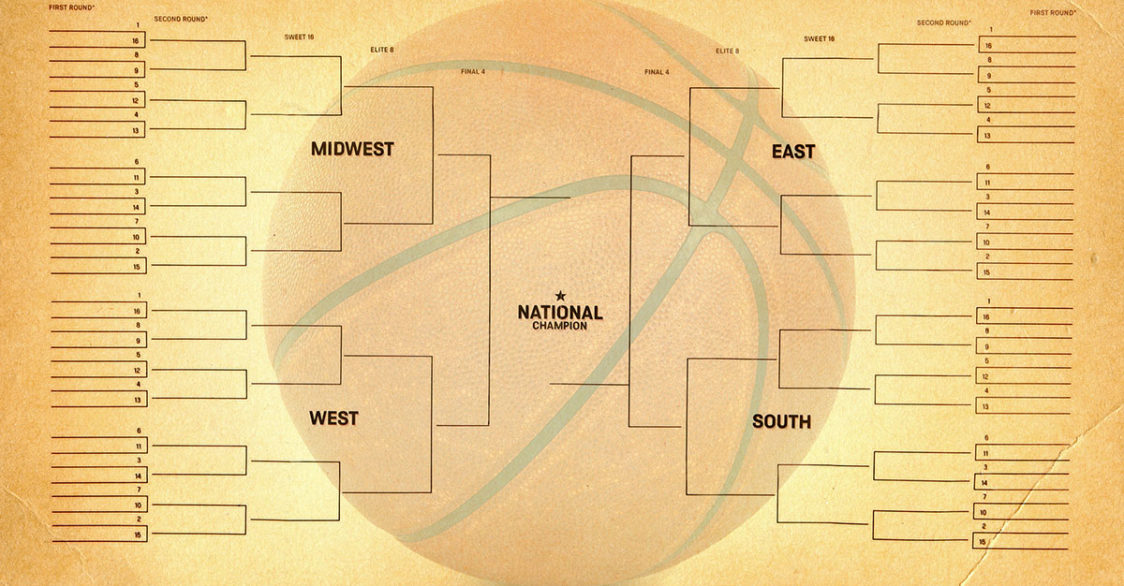It’s called March Madness, and it grips nearly every office on the block, every dorm on campus, every sports fan—and many non-sports fans—who have half an inkling they know anything about basketball.
The NCAA tournament is big business with an underbelly that drags victims to the dark side as well.
“They call it ‘March Madness, April Suicide’ in the recovery gambling business,” says Uberto Mondolfi, a national certified gambling counselor.
Do you think it’s a coincidence that National Problem Gambling Awareness Month arrives with the onset of the planet’s most famous basketball tournament? It begins mid-March and finishes the first week of April, this season culminating with the Final Four in Indianapolis.
“For some gamblers, ‘March Madness’ truly describes their incredibly strong, persistent urges to gamble regardless of the consequences,” said Keith Whyte, executive director of the National Council on Problem Gambling. “Problem gamblers report feeling trapped during the tournament, bombarded by commercials and conversations about selections, sleeper teams and, of course, the point spread.”
The American Gaming Association estimates Americans will bet $9 billion on the NCAA tournament; only $2 billion will be bet in bracket pools, the rest on individual games. Seventy million (about one in five Americans) are expected to participate in some form of tournament gambling, with nearly 40 million involved in bracket activity. Even President Barack Obama gets involved; he picked Kentucky and Villanova to reach the finals April 6.
As a gambling event, the tournament exceeds the Super Bowl. For exposing those predisposed to gambling addiction—typically type A personalities—March Madness is a monster. The more people exposed to gambling, the larger number of people who are likely to get hooked.
College Students at Risk
At its core, the NCAA basketball tournament is a college event for 68 teams that covers nearly every region of the continental United States; only two states have never had a college participate: Alaska, which doesn’t have an eligible team, and Maine, which has been horrible. The tournament’s market penetration is huge. So, too, is its appeal to college students, who are some of the most vulnerable victims of gambling addiction.
Globally, gambling grips 1 percent to 2 percent of the population. But among American college students, 80 percent gamble in some form, 42 percent of those gamble often, and more than 10 percent show tendencies of pathological gambling, or addiction, Mondolfi said.
“That’s a huge number, it’s almost like alcoholism,” Mondolfi said. “It’s relaxed, it’s part of the party or university culture and you want to be a part of it, you want to place a bet. If you add that to being part of the community, you not only add alcohol to the risk but the other things people try or experiment with. College students are very vulnerable.”
Allure of the Game
“The brain finishes developing at about 25 if you don’t touch it with alcohol or marijuana or other drugs,” Mondolfi said. “What’s going to happen to that brain when a gamble turns into $2,000 in 20 minutes? The brain will get the high of the excitement of winning, the reinforcement of making $2,000 in 20 minutes, and the cognitive distortion of ‘Hey, I’m very good at this.
“Let’s say San Diego State loses in the first round and you lose $100. If you’re a pathological gambler, you’re going to chase your bet, go double or nothing just to get your money back. If you win, you still have the bug. If you lose, you’re going to keep chasing until you get it back. With a pathological gambler, if you lose, you chase, and if you win, you feel like a God. That’s the hook.”
But it’s not just limited to college students.
Collateral Damage
The large quantity of televised games in a very condensed period of time makes the tournament an optimum environment for gambling. It’s an event with results occurring throughout the day. Engaging in tailgating—even if it’s in a living room or barroom—is a natural part of it. Binge drinking, and its perils, becomes a tournament player as well.
Mondolfi, who previously worked at a drug treatment center in Florida, said feedback from those filling out questionnaires upon rehab entrance indicated gambling addicts consider suicide more often than those with other addictions.
Financial difficulties are among the reasons commonly attributed to suicide, and gambling is all about managing debt—and often keeping it hidden from loved ones. Suicide rates and the use of suicide prevention hotlines rise in April and June over other months, at the conclusion of March Madness.
Help Is Available
According to the National Council on Problem Gambling, warning signs of being a problem gambler include preoccupation with betting, lying about how much money has been bet, feeling anxious or sleepless due to betting activity, borrowing money to continue betting or to cover losses, and keeping it secret from family or friends.
As the NCAA tournament gets underway—a 2012 Yahoo survey reported 14 percent of basketball fans have skipped work to follow the event—the New York Council on Problem Gambling offers these tips for people with a gambling problem:
- Stay away from trigger situations, such as sports bars or large groups where the games are broadcast, and avoid discussing brackets with co-workers.
- Excuse yourself from participating in gambling pools at work or among groups of friends.
- Keep emergency numbers handy, such as the confidential National Problem Gambling helpline, 1-800-522-4700 (it can also be used for texting). This will give you someone who understands the overwhelming craving to bet. Support from others can keep you focused on your goal: Not gambling.
- Seek alternative ways to enjoy the tournament, such as with a friend or a group that enjoys the games without the gambling element.

